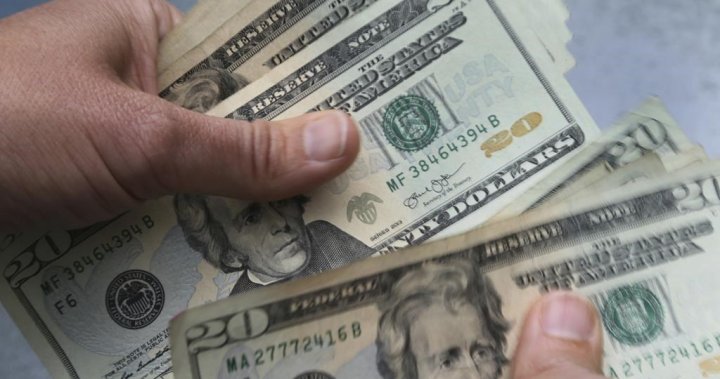Immigration officials have launched deportation proceedings against five more suspected members of the Iranian regime found in Canada, according to newly released figures.
The Canada Border Services Agency has alleged they held senior positions in Iran’s repressive government and has asked the Immigration and Refugee Board to hold hearings.
They face removal from Canada under sanctions adopted in 2022 that ban tens of thousands of top Iranian officials, including Islamic Revolutionary Guard Corp (IRGC) members, from the country.
The sanctions were enacted after Iran’s morality police arrested Mahsa Amini for showing her hair in public and killed her while she was in custody, setting off protests that were brutally suppressed.
Since then, the policy has been used to order the deportation of two Iranian officials, Majid Iranmanesh, a science advisor, and Seyed Salman Samani, who was deputy interior minister.
But unlike those cases, which were held in public, hearings for the subsequent five are being conducted behind closed doors and the government has not released their names.
Deportation hearings are supposed to occur in public, unless the person concerned has made a refugee claim. Global News has applied to open the proceedings to the press.
“Canada has, for too long, been a safe haven for people with ties to Iran’s regime. So I’m glad the government is increasingly taking action against them,” said lawyer and human rights activist Kaveh Shahrooz.
“But I wish the government would be more transparent about who these figures are and how they got into the country in the first place.”
Breaking news from Canada and around the world
sent to your email, as it happens.
Canada broke off diplomatic ties with Iran in 2012. In 2020, the IRGC shot down a passenger plane departing Tehran airport, killing 55 Canadian citizens and 30 permanent residents.
The IRGC also arms, funds and trains Hamas, the terror group that killed 1,200 Israelis and kidnapped more than 200 on Oct. 7. More recently, Iran has supplied drones to Russia for attacks on Ukraine.
Canada designated Iran “a regime that has engaged in terrorism and systematic and gross human rights violations” in November 2022, making holding senior posts in the the Islamic republic inadmissible to Canada.
On June 19, the government placed the IRGC on its list of terrorist entities, alleging it “knowingly carried out terrorist acts” and “acted in association” with Hamas, Hezbollah and Islamic Jihad.
Iran is also among the countries the government has said was engaged in foreign interference targeting dissidents and critics, and Iranian-Canadians have long complained that Iranian regime officials were entering Canada.
According to figures released on June 3, the Canada Border Services Agency has launched 87 investigations into suspected senior Iranian regime members living in the country.
Forty-three investigations have been closed because the individuals in question were either not in Canada or deemed not to be senior Iranian officials, the CBSA said.
So far, immigration officials have identified 14 “well-founded” cases of senior regime members, seven of which have now been sent to the IRB for hearings. Aside from the two cases that have been completed, five are now listed as “ongoing.”
The IRB declined to provide any information about them, but did not explain why the cases were proceeding in secrecy.
“As a matter of practice, the IRB does not provide information on any cases that are not public,” said spokesperson Anna Pape.
“We can confirm that, at this time, the IRB has received a total of two such cases which proceeded in public: Mr. Iranmanesh and Mr. Samani.”
“We have no other cases related to the Iran regime … that are proceeding in public at this time, and cannot comment on whether or not we have any non-public ones.”
Iran is currently holding elections following the death of president Ebrahim Raisi in a helicopter crash on May 19. Following an initial vote, a run-off is set for July 5.
Among those knocked out in the first round of voting was Mohammad Bagher Ghalibaf, Iran’s parliamentary speaker and a former senior commander in the IRGC.
Court documents obtained by Global News show that his son, Eshagh Ghalibaf, applied to immigrate to Canada. He then launched a court case against Canada, alleging his security screening was taking too long.
In a Feb. 21 social media post, Immigration Minister Marc Miller said the government had refused his permanent residency application on Feb. 6. “The Iranian regime has engaged in acts of terrorism and systemic human rights violations.”
© 2024 Global News, a division of Corus Entertainment Inc.




